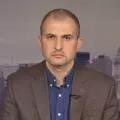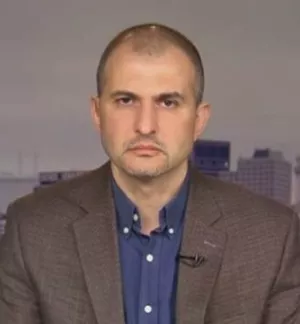When Donald Trump’s team announced Nov. 13 that it plans to appoint Florida Sen. Marco Rubio as the next Secretary of State, few were surprised or bewildered like, for instance, when Matt Gaetz was named as the president-elect’s choice for the next Attorney General. After all, the Republican senator has become a known quantity since assuming the legislative office in 2011, with his views and votes widely reported in U.S. and international press. Nevertheless, we think it is useful to remind our readers what the man who has called the nomination by Trump a “tremendous honor” and who is likely to play a key role in shaping America’s policies toward Russia, Ukraine and the rest of the post-Soviet Eurasian states in the next four years has said on these topics (if officially nominated and confirmed sometime after Jan. 20, 2025).
Our exploration of various sources, including Congressional sites and Factiva, has revealed that, while never missing a chance to co-sponsor punitive measures against Russia over its aggression in Ukraine or other transgressions (especially if these measures benefited the U.S. economy), Rubio has come to believe that a negotiated settlement between Russia and Ukraine is the only realistic way to end the war. “I think Ukrainians have been incredibly brave and strong in their stand against Russia,” the senator said earlier this month. “But ultimately, what we're financing here is a stalemate, and it needs to be brought to an end. I believe common sense should prevail,” Rubio said. “You don't have to be a fan of Vladimir Putin to want to end the war,” added Rubio.
Rubio shares Trump’s view that the Russian-Ukrainian war should be ended through peaceful negotiations rather than through continued large-scale military aid by the West to Ukraine. In line with this belief, he voted against the $95 billion in U.S. aid to Ukraine in April 2024, but voted in favor of aid to Ukraine in May 2022.
Rubio has also (at least recently1) been a loyal supporter of Trump on China, professing hawkish views on Beijing, which he sees as a greater threat than Moscow. “Russia is an acute problem and it’s a present-day challenge. But it's a five-year or 10-year problem. China is a 100-year problem,” Rubio observed in 2022. He is also seen as likely to toe Trump’s line on reinstating the maximum pressure campaign on another of Russia’s partners in the anti-Western alignment, Iran.
Another issue on which Rubio appears to share views with Trump, is the risk of a nuclear war. Like his presumptive future boss, Rubio is concerned that the imposition of a no-fly zone by NATO over Ukraine could cause the Russian-Ukrainian conflict to escalate into a World War III. Such a convergence of views between the two (or rather Rubio’s support for Trump’s views) may explain why he was reportedly one of three finalists considered to be Trump’s pick for vice president. However, Rubio has deviated from Trump in some areas. For instance, Rubio has diverged from the NATO skeptics in Trump’s team by repeatedly co-sponsoring bills to strengthen U.S. entanglement in the NATO alliance, emphasizing that any U.S. exit from NATO should require congressional approval.
The compilation of Rubio’s views and action (such as votes) on these and other issues below covers the past five years. It is part of Russia Matters’ “Competing Views” rubric, where we share prominent American figures’ takes on issues pertaining to Russia, U.S.-Russian relations and broader U.S. policies affecting Russia. All sections may be updated with new or past statements. The quotes below are divided into categories similar to those in Russia Matters’ news and analysis digests; reflecting the most pertinent topic areas for U.S.-Russian relations broadly, and for the drivers of the two countries’ policies toward one another.
Read more at: https://www.russiamatters.org/analysis/marco-rubio-russia-and-ukraine
Saradzhyan, Simon and Angelina Flood. “Marco Rubio on Russia and Ukraine.” Russia Matters. November 15, 2024
The full text of this publication is available via Russia Matters.




